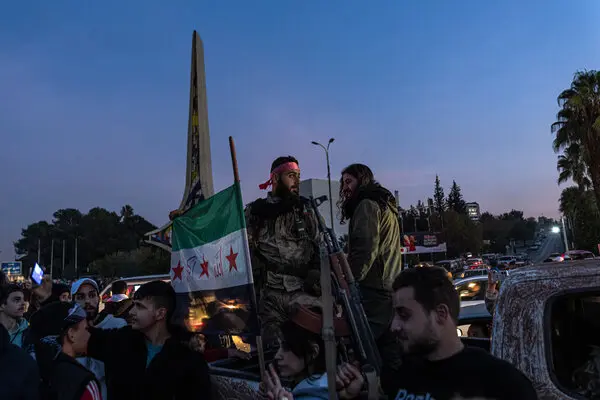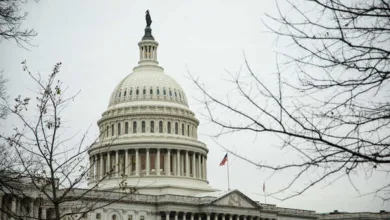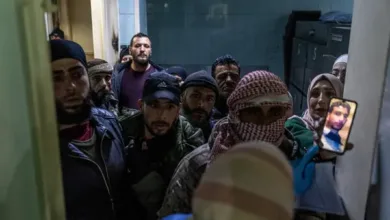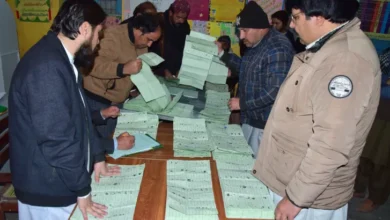5 Powerful Insights on Future Rebel Governance in Syria

As Syria faces a potential shift in leadership, questions arise about how the rebels might govern the country. Drawing from their past strategies and current alliances, Future Rebel Governance in Syria could signal significant changes in regional politics and societal structures. This blog explores five powerful insights into how rebel groups may shape Syria’s future, focusing on lessons from history and current developments.
1. Fragmented Leadership and Alliances
The history of Syria’s rebel groups highlights a fragmented leadership structure. Groups like the Syrian National Army (SNA) and Hay’at Tahrir al-Sham (HTS) operate with diverse agendas and ideologies. The lack of a unified command has often led to internal conflicts, complicating governance efforts.
For effective governance, these factions must overcome their divisions and form cohesive alliances. Past failures in collaboration underscore the need for a centralized leadership model to provide stability and direction.
2. Balancing Regional and International Influence
Rebel groups in Syria have long been influenced by external powers like Turkey, the U.S., and Russia. These alliances bring financial and military support but also create dependency. In shaping Future Rebel Governance in Syria, these groups will need to balance external influence while asserting their autonomy.
The challenge lies in leveraging international support without compromising national sovereignty. Learning from the experiences of other post-conflict nations, Syrian rebels must prioritize policies that reflect the interests of their citizens.
3. Addressing Human Rights Concerns
Past governance by rebel groups has often been marred by allegations of human rights abuses. For example, HTS’s strict enforcement of Sharia law in areas under its control has faced criticism for restricting freedoms. To gain legitimacy, rebel governance must address these concerns and uphold human rights standards.
Ensuring justice, transparency, and inclusivity in their policies will be critical for establishing public trust. These measures will also be essential for gaining international recognition and support.
5 Powerful Insights on Future Rebel Governance in Syria
As Syria faces a potential shift in leadership, questions arise about how the rebels might govern the country. Drawing from their past strategies and current alliances, Future Rebel Governance in Syria could signal significant changes in regional politics and societal structures. This blog explores five powerful insights into how rebel groups may shape Syria’s future, focusing on lessons from history and current developments.
1. Fragmented Leadership and Alliances
The history of Syria’s rebel groups highlights a fragmented leadership structure. Groups like the Syrian National Army (SNA) and Hay’at Tahrir al-Sham (HTS) operate with diverse agendas and ideologies. The lack of a unified command has often led to internal conflicts, complicating governance efforts.
For effective governance, these factions must overcome their divisions and form cohesive alliances. Past failures in collaboration underscore the need for a centralized leadership model to provide stability and direction.

2. Balancing Regional and International Influence
Rebel groups in Syria have long been influenced by external powers like Turkey, the U.S., and Russia. These alliances bring financial and military support but also create dependency. In shaping Future Rebel Governance in Syria, these groups will need to balance external influence while asserting their autonomy.
The challenge lies in leveraging international support without compromising national sovereignty. Learning from the experiences of other post-conflict nations, Syrian rebels must prioritize policies that reflect the interests of their citizens.
3. Addressing Human Rights Concerns
Past governance by rebel groups has often been marred by allegations of human rights abuses. For example, HTS’s strict enforcement of Sharia law in areas under its control has faced criticism for restricting freedoms. To gain legitimacy, rebel governance must address these concerns and uphold human rights standards.
Ensuring justice, transparency, and inclusivity in their policies will be critical for establishing public trust. These measures will also be essential for gaining international recognition and support.
4. Economic Reconstruction as a Priority
Syria’s prolonged conflict has devastated its economy, leaving infrastructure in ruins and millions in poverty. The ability of rebel groups to rebuild the economy will be a defining factor in their governance.
Key strategies could include:
- Encouraging investment in agriculture and industry.
- Securing international aid for infrastructure development.
- Prioritizing job creation to reduce unemployment.
Economic stability will be vital for sustaining long-term governance and improving the quality of life for Syrian citizens.
Table of Contents
5. Building a Political Framework for Governance
The rebels’ governance approach will require a clear political framework that incorporates diverse ethnic and religious groups. Syria’s multi-ethnic society includes Arabs, Kurds, and other minorities, all of whom must have representation in decision-making processes.
Implementing democratic practices, such as free elections and decentralized governance, can promote inclusivity. Drawing lessons from previous governance attempts, rebel groups must focus on creating institutions that ensure accountability and equal representation.
Conclusion: Challenges and Opportunities Ahead
The Future Rebel Governance in Syria presents both challenges and opportunities. While the legacy of fragmented leadership and human rights abuses poses obstacles, there is potential for a more inclusive and democratic governance model. By addressing economic reconstruction, balancing international influence, and ensuring human rights, rebel groups can pave the way for a stable and prosperous Syria.
This transformative period in Syria’s history requires visionary leadership and a commitment to the well-being of its citizens. The world watches closely as these groups navigate the complexities of post-conflict governance, hoping for a peaceful and equitable resolution.




